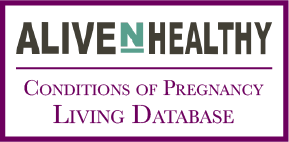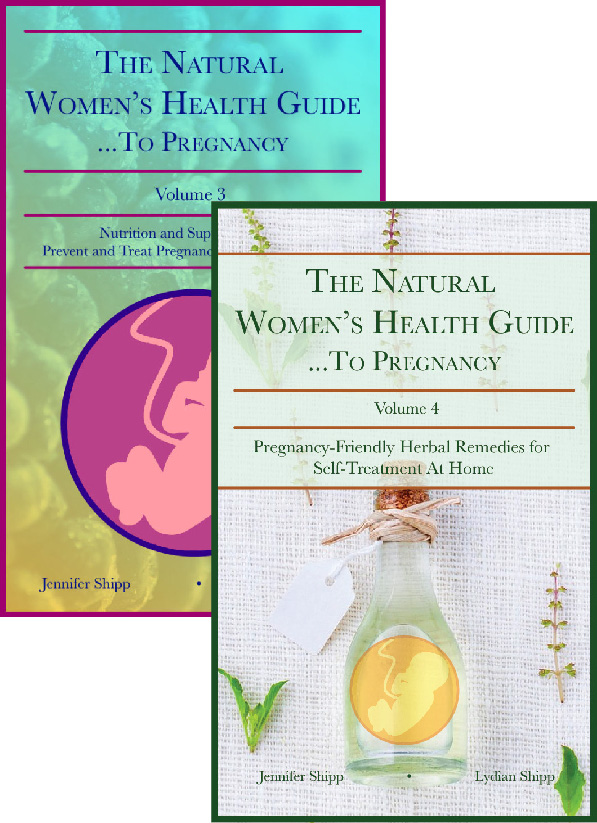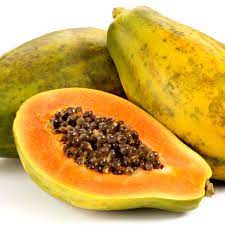Foods to Avoid During Pregnancy
Beyond the question of what a woman should eat when she’s pregnant is the question of what she should not eat. Indeed, there are certain foods that can pose a risk to mother or baby during pregnancy, and should therefore be avoided. A lot of women already know about some foods to avoid during pregnancy, like sushi and soft cheeses, but very few sources discuss why these foods should be avoided (and fewer still have a more complete list of foods to avoid during pregnancy). So, below we discuss some of the most important foods to avoid during pregnancy, along with some information on why you should avoid them. We also discuss some of the myths about foods to avoid and why you can and should eat those foods during pregnancy.Papaya / Papain: AVOID
Papaya should be avoided throughout pregnancy, except perhaps at the very end when the pregnancy can be considered to be at term (37+ weeks). This is because papaya, particularly under-ripe papaya, the outer rind of the papaya, and the papaya “latex”, is rich in an enzyme called papain, which has been known to soften the cervix and induce miscarriage in some cases. In addition, papaya latex has been found to potentially cause uterine contractions. Indeed, some cultures in Asia advise pregnant women to avoid papaya entirely in all its forms, so this rule of avoiding papaya in pregnancy is backed not only by traditional practices but also by scientific evidence.Pineapple / Bromelain: SAFE TO CONSUME IN NORMAL DIETARY QUANTITIES
Pineapple is safe in small quantities early in pregnancy. Don’t eat a whole pineapple in one sitting; if you have a pineapple ring or a small helping of pineapple, this is unlikely to do any harm. Be sure that the pineapple you eat is ripe, and avoid eating any of the skin, however, since unripe pineapple and pineapple skins are more likely to be higher in bromelain (this is an enzyme that has some similar behaviors to papain in terms of cervical softening). Later in pregnancy, some women choose to eat larger quantities of pineapple in an attempt to stimulate labor. Sometimes this works/helps, sometimes it doesn’t, so don’t rely on the Pineapple Method for inducing labor.Later in pregnancy, it can be beneficial to drink 8 ounces of pineapple juice daily to stimulate digestion and keep the bowels moving. Again, stick to normal food-quantities with this food because in larger doses it can soften the cervix.
Bromelain and Papain: What You Need to Know
Papain and bromelain are extremely common enzymes that are found in enzyme supplements, protein powders, and many other health food products. These are the specific constituents found in papaya and pineapple that should be avoided during pregnancy. When bromelain and papain are extracted from the rest of the fruit and isolated into supplement form, they may have more powerful effects on the body that could be negative during pregnancy. Make sure to check all of your supplements and other health food products to see if they contain either of these enzymes extracts; if you find a product that does, put it to the side for use after you give birth. The enzymes in papaya and pineapple are in fact good for your digestive health under normal circumstances (in fact, it’s a good practice to eat a little of pineapple after a meal to support digestion during pregnancy), but due to their potentially negative effects during pregnancy, the enzymes that have been isolated from the rest of the fruit material should be avoided during gestation. The Conditions of Pregnancy Living Database - NOW AVAILABLE! Click here to learn more...
The Conditions of Pregnancy Living Database - NOW AVAILABLE! Click here to learn more...
Undercooked and Raw Meat, Seafood, and Eggs: AVOID WHENEVER POSSIBLE
Sushi, over-easy eggs, and raw meat dishes (like Ethiopian Kitfo) are usually advised against during pregnancy. While it’s true that women in Japan, for example, do eat raw fish sushi during pregnancy, and I’m certain that pregnant Ethiopian women eat Kitfo from time to time, if you have the option, it’s wise to avoid these kinds of foods simply because they pose more risks than they’re worth in many cases during pregnancy.Undercooked or raw meats are significantly more likely to contain parasites, bacteria, or other infectious pathogens like Salmonella, Toxoplasma gondii, Listeria, and Eschericia coli, among others. During pregnancy a woman’s immune system is suppressed to some extent which makes her more susceptible to certain types of infection. Heat is the key factor that ultimately kills these pathogens, which is why the simple act of heating and cooking food to the proper heat and level of “done-ness” can be enough to ward off these kinds of food-borne diseases.
Even if you normally eat these foods without issues, it’s important to remember that your immune system is less functional during pregnancy, and also that your organs of detoxification (like the liver and kidneys) are under more stress at this time. This combination of factors means that if you were to develop food poisoning from one of these pathogens, the resultant infection would pose more of a risk to your health (and your baby’s health, by default) than it otherwise might.
To further prove this point, the CDC suggests that pregnant women are 10 times more likely to be infected with Listeria in particular, with Hispanic women being 24 times more likely to be infected with this bacteria during pregnancy. In addition, an infection with Salmonella bacteria during pregnancy has been linked to uterine cramping, and thus in rare cases, even to miscarriage or stillbirth. It’s simply not worth it to eat these undercooked food items during pregnancy.
More About Seafood Safety…
Seafood has an extra layer of risk, since, unfortunately, a lot of seafood is contaminated with heavy metals or other harmful chemicals. Although there are a lot of very healthy types of fish that can be enjoyed during pregnancy, it’s essential that you do your homework and choose fish that’s less likely to be contaminated. And, if you can’t find a high-quality source of fish, avoid it entirely to minimize risk.Seafood that contains high levels of mercury or other contaminants include:
- Tuna
- Shark
- Swordfish
- Marlin
- Orange roughy
- King mackerel
- Sturgeon
- Striped bass
- Pikeminnow
- Black bass
- American shad
- Chinook salmon
- Steelhead trout
- Tilapia
- Flounder
- Caviar
- Eel
- Striped catfish (usually labeled as just catfish, or as basa, swai, or tra)
- Imported, farmed shrimp
- Imported king crab
- Grouper
- Farmed Atlantic salmon
Healthier seafood options that contain lower levels of mercury and contaminants include:
- Salmon
- Freshwater trout
- Haddock
- Cod (though Atlantic cod should be avoided)
- Bluegill
- Redear Sunfish
- Pacific sardines
- Atlantic mackerel
- Sablefish / Black cod (from Alaska or the Canadian Pacific)
- Albacore tuna (from the US or British Columbia)
Oily fish varieties, like cod, can sometimes contain high levels of other chemical pollutants, though, so again, if you’re a big fan of fish, keep some of these basic guidelines in mind for choosing pollutant-free fish (and again, make sure to cook your fish very well to avoid getting sick, especially during pregnancy!):
- Choose Alaskan fish - Alaskan fisheries are regarded as being some of the healthiest in the world. Wild Alaskan halibut, salmon, and sablefish are some of the best options.
- Avoid the fish on the list of high-mercury/high-contaminant seafoods above
- Choose fish with the Marine Stewardship Council stamp - This organization regularly investigates wild fisheries throughout the world to ensure that the fish are high quality and contaminant-free (or close to it). Visit the MSC website for more information and a list of approved fish suppliers.
- Do your research - While there are some basic guidelines to follow when choosing healthier, less contaminated fish, the reality is that there are a lot of options. On your next grocery store visit, make a list of the different fish options there are, and try to gather more information about where these seafood options come from. With some basic information, you can do research on your specific seafood options, and then make an educated decision on what you find.
Unpasteurized Milk and Soft Cheeses: AVOID UNLESS PROPERLY PREPARED
Pregnant women are advised to avoid unpasteurized milks and soft cheeses for the same reason that they should avoid eating raw meats and raw seafood: unpasteurized milk and soft cheeses carry a somewhat higher risk of illness caused by Listeria, Salmonella, Escherichia coli, and Campylobacter bacterias.Some of the specific types of cheeses that pose a higher risk include:
- Brie
- Camembert
- Chevre (a goat’s cheese)
- Ricotta
- Feta
- Mozzarella
- Bocconcini
- Blue-veined cheeses (such as blue cheese)
- Gorgonzola
- Roquefort
If these cheeses listed above are heated to a temperature of at least 170 degrees Fahrenheit (75 degrees Celsius) and eaten immediately, they can be considered safe. Hard cheeses and pasteurized soft cheeses are also acceptable.
I want to make note here, however, that if you choose to eat dairy products of any kind (from any animal), that they should come from grass-fed, organically-raised animals. Some people will only be able to get this kind of product from a local farmer, and in this case, it’s unlikely that the milk will be pasteurized; rather, it’s more likely that the milk will be raw. There are a number of important health benefits to eating raw milk, especially when it comes from an animal that’s grass-fed and raised using organic methods, but safety is of course the priority during pregnancy!
Thus, rather than fully pasteurizing this fresh milk, it’s still wise to boil the milk before consuming it. Pour all of the milk you get into a large pot, and bring the milk to a boil. When it starts boiling, reduce to a simmer for about 8-10 minutes. Then, turn the heat off, let the milk cool, and store in a glass container in the fridge. Depending on the kind of milk that you get, your fridge, and other factors, the milk will usually stay good for up to 1 week (some separation is normal, but if the milk starts to smell “off”, don’t take any risks, throw it out and get new milk).

"The Natural Women's Health Guide... to Pregnancy - BUY HERE!"
Unwashed Fresh Produce: AVOID
Ideally, your pregnancy diet should include an abundance of fresh fruits and vegetables of all kinds, both in raw and cooked forms. Eat all the fresh produce you want! However, it’s important to clean your produce well before consuming it in order to prevent accidental ingestion of various foodborne (and other) pathogens that may be living on the surface of your fruits and veggies. Even if you live in a developed country like the US, Canada, or a European country, it’s still a good practice to soak your produce to prevent disease from occurring.Cleaning your fresh produce is very simple and only takes a few extra minutes. When you get home from the grocery store, put your fresh fruits and vegetables into a large pot or some large bowls. Fill this pot or the bowls with enough water to cover the produce. Then, add some colloidal silver or food grade hydrogen peroxide to the soaking water and leave the produce to soak for 15 minutes. After 15 minutes of soaking, remove the fruits and vegetables and put them in fruit baskets designated for produce that has already been soaked (make sure to keep your soaked produce separate from your unsoaked produce so that you don’t get confused later on).
A word to the wise: wait to soak dark leafy greens, mushrooms, carrots, radishes, and most other root vegetables until immediately before using them. If you soak these well in advance of cooking, they sometimes go bad more quickly. Instead of soaking right away, put these kinds of veggies in a separate location or basket in your kitchen all together so that you know that these have not been soaked, and so they don’t contaminate the foods that have been soaked, and then make a habit of soaking these immediately before preparing a meal.
 Essential Oxygen Food Grade Hydrogen Peroxide, Natural Cleaner, 3% USP, White, 16 Ounce
Essential Oxygen Food Grade Hydrogen Peroxide, Natural Cleaner, 3% USP, White, 16 Ounce
A Note About Raw Sprouts…
A lot of information about diet during pregnancy says that pregnant women should swear off all forms of raw sprouts, including alfalfa sprouts, bean sprouts, clover sprouts, and others, due to the potential risk of Salmonella. While it’s true that Salmonella can live on raw sprouts like these, so long as you’re soaking your sprouts according to the instructions above, there’s no other reason to avoid them. Raw sprouts are extremely healthy, and both colloidal silver and hydrogen peroxide (no matter which you choose) have antibacterial action against Salmonella specifically in addition to other potentially harmful bacteria. So soak your sprouts, and enjoy as many of them as you wish.A Note About Fresh Juices…
Some sources will also tell you to avoid fresh fruit and vegetable juices. This is unfortunate, since fresh fruit and veggie juices are highly nutrient rich, and also extremely easy to digest. For women suffering from morning sickness, or who just feel “stuffed”, this can be a good way to get in some extra nutrients during the day without aggravating pregnancy symptoms.To stay safe with fresh juices, you should either 1) make the juices yourself, and clean your juice maker thoroughly with hot water after each use, or 2) only drink juices from places where you can see the kitchen and the juice machines, and where the equipment looks pristine. If you have any question about sanitation in the place where you’re considering buying a fresh juice, avoid it. Unwashed fruits and vegetables are, again, a potential problem unless you make the juice yourself at home, as is contaminated, unclean equipment or hands. Otherwise, fresh juice is an extremely safe and healthy option during pregnancy.
When making juice at home, it’s helpful to make some in advance for yourself to have for at least a few days. If you do this, store your juices in glass containers in the fridge for no more than 3 days. Ideally, choose flip-top containers to store your juices, since these create a seal that will help keep out bacteria (and unwanted flavors) and will keep your juice truly fresh for the full 3 days in the fridge.
Leftovers: AVOID
Though not a specific food, leftovers deserve special mention when it comes to foods to avoid during pregnancy. As a general rule, foods that have been stored in the fridge for 3 days should be thrown out and not eaten (this includes not only meats, but also cooked fruits and vegetables). This is because the longer foods are stored, the higher the risk of them becoming contaminated with infectious pathogens that may not normally cause problems for a non-pregnant individual. During pregnancy, leftovers pose certain health hazards due to lowered immune resistance that are not as much of a concern for women who are not pregnant. If you choose to eat leftovers from the night before, for example, it’s also important to use safe food preparation practices. Heat your leftovers until they’re steaming hot before eating, and don’t leave food sitting out for long periods of time without refrigeration.Medicinal Foods to Avoid During Pregnancy: AVOID
Some more obscure foods that can also be used medicinally should be avoided during pregnancy. You may or may not even have access to these foods. You may not have even heard of them, but because they’re a relatively notable part of the cuisine in certain areas of the world, we thought it would be valuable to include this list just in case:-
- Bitter melon (Momordica chantaria)
- Rhubarb (Polygonaceae)
- Pennywort (Centella asiatica)
- Artemisia spp. (this includes plants like tarragon and wormwood)
- Vietnamese coriander (Persicaria odorata)
- Aloe vera
- Purslane (Portulaca oleracea)
- Fenugreek (Trigonella foenum-gracum) (NOTE: Fenugreek is safe in small quantities during pregnancy when used in food as a spice; it should not, however, be taken in medicinal doses in most cases)
- Kudzu (Pueraria lobata)
 Click here to subscribe to the Living Database!
Click here to subscribe to the Living Database!
Resources:
Adebiyi, Adebowale, et. al. (2002). Papaya (Carica papaya) consumption is unsafe in pregnancy: fact or fable? Scientific evaluation of a common belief in some parts of Asia using a rat model. Retrieved April 10, 2023 from: https://pubmed.ncbi.nlm.nih.gov/12144723/
Barbour, Celia (2008). Nice Catch! Retrieved April 10, 2023 from: https://www.oprah.com/food/fish-safety-toxin-free-seafood-guide/all
OEHHA (2023). Eating Fish Safely. Retrieved April 10, 2023 from: https://oehha.ca.gov/fish/general-health-advice-people-catching-and-eating-sport-fish-california
Zerbe, Leah (2023). 17 Fish You Should Never Eat, Plus Safer Seafood Options. Retrieved April 10, 2023 from: https://draxe.com/nutrition/fish-you-should-never-eat/
Bjarnadottir, Adda (2020). 11 Foods and Beverages to Avoid During Pregnancy - What Not to Eat. Retrieved April 10, 2023 from: https://www.healthline.com/nutrition/11-foods-to-avoid-during-pregnancy
NHS (2020). Foods to avoid in pregnancy. Retrieved April 10, 2023 from: https://www.nhs.uk/pregnancy/keeping-well/foods-to-avoid/
N.A. (2022). Foods to avoid when pregnant. Retrieved April 10, 2023 from: https://www.pregnancybirthbaby.org.au/foods-to-avoid-when-pregnant N.A. (2022). List of Vegetables to Avoid During Pregnancy. Retrieved April 10, 2023 from: https://stylesatlife.com/articles/vegetables-to-avoid-during-pregnancy/

 Papaya, particularly unripe papaya can act as an abortificient. As such, papaya should be avoided during pregnancy.
Papaya, particularly unripe papaya can act as an abortificient. As such, papaya should be avoided during pregnancy.








